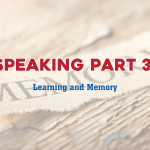Task 2: Most countries aim to improve their standard of living through economic development, but many important social values can be lost as a result. Do the advantages of economic development outweigh the disadvantages?
In the pursuit of economic development, nations often experience a trade-off between improving living standards and potentially sacrificing important social values. While economic progress brings about tangible benefits such as increased income and access to goods and services, it can also lead to the erosion of cultural heritage, social cohesion, and environmental sustainability. This essay will examine both the advantages and disadvantages of economic development before reaching a conclusion on whether its benefits outweigh the drawbacks.
Advocates of economic development argue that it brings about significant improvements in living standards. As countries industrialize and their economies grow, people generally experience higher incomes, better healthcare, improved education, and increased access to technology and infrastructure. These advancements contribute to enhanced quality of life, reduced poverty, and greater opportunities for social mobility. For example, in South Korea, rapid economic development over the past few decades has transformed the country from a war-torn nation into one of the world’s leading economies. This growth has led to a dramatic increase in living standards, with South Koreans now enjoying higher incomes, access to cutting-edge healthcare and education, and modern infrastructure that has improved overall quality of life.
However, the pursuit of economic growth can also lead to the neglect or loss of important social values. Rapid urbanization and industrialization may result in the destruction of cultural heritage sites, loss of traditional practices, and disruption of community bonds. Moreover, unchecked economic development often leads to environmental degradation, threatening ecosystems, biodiversity, and the long-term sustainability of resources. For example, in China, rapid economic growth has led to the destruction of historical neighborhoods in cities like Beijing and Shanghai to make way for high-rise buildings and commercial developments. This has resulted in the displacement of local residents and loss of cultural heritage.
In conclusion, while economic development undoubtedly brings significant benefits in terms of improving living standards, it is crucial to recognize and address its potential drawbacks. Striking a balance between economic progress and the preservation of social values is essential for sustainable development.
Economic development: Phát triển kinh tế
Standard of living: Mức sống
Social values: Giá trị xã hội
Trade-off: Sự đánh đổi
Erosion: Sự xói mòn
Cultural heritage: Di sản văn hóa
Social cohesion: Sự đoàn kết xã hội
Environmental sustainability: Bền vững môi trường
Industrialize: Công nghiệp hóa
Infrastructure: Cơ sở hạ tầng
Advancements: Những tiến bộ
Poverty: Nghèo đói
Social mobility: Sự di chuyển xã hội
Urbanization: Đô thị hóa
Disruption: Sự gián đoạn
Biodiversity: Đa dạng sinh học
Preservation: Bảo tồn
Holistic: Toàn diện
Inclusive: Bao hàm
Equitable: Công bằng






